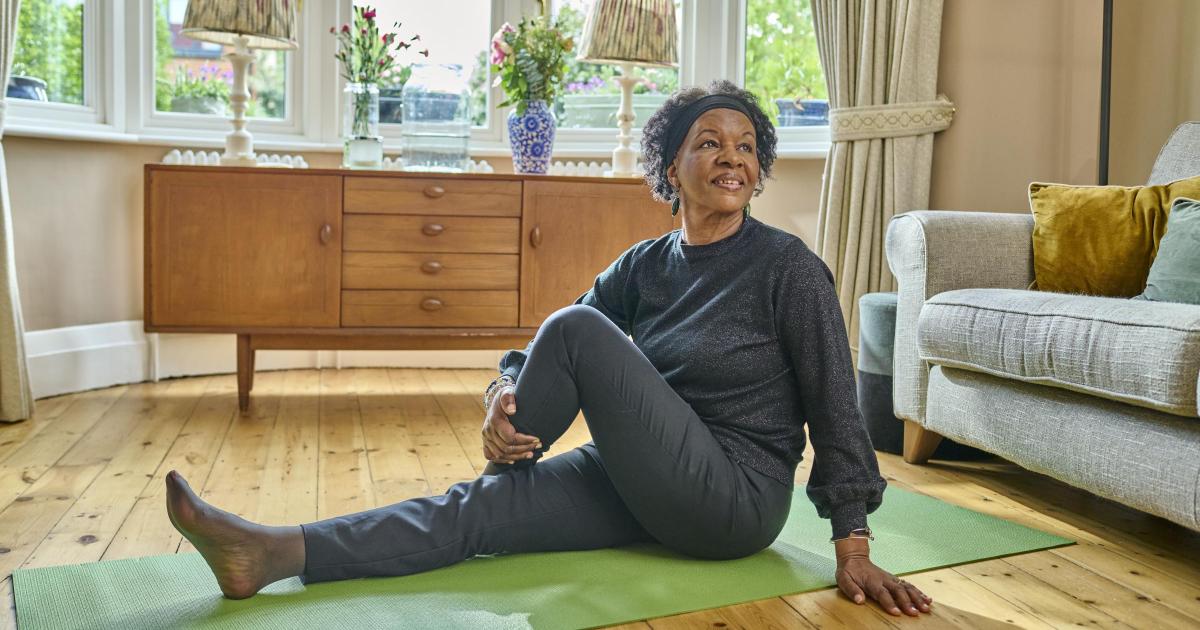As we age, an active lifestyle becomes increasingly important for our overall health. Regular physical activity can boost cardiovascular health, mood and energy levels, as well as enhancing flexibility, balance, and reducing the risk of falls.
For those 50+, juggling work and caregiving and exercising may seem impossible, but it doesn’t have to be. Here are practical tips to stay active without overwhelming schedules.
1. Start Small and Build Gradually
Begin with light activities like walking or stretching. Aim for 10-15 minutes a day and gradually increase the duration and intensity. Consistency matters more than perfection.

2. Integrate Physical Activity into Daily Routines ‘’movement snacking’’
Find ways to incorporate movement into everyday tasks.
- Take the stairs
- Active travel: cycling, getting of a stop early or parking further away
- Dance or stretch during TV breaks or whilst cooking.
- Carry shopping or luggage
- Get rid of household gadgets that have engineered movement out, like the electric whisk and robot vacuum.
- Add random items in your backpack to increase the weight before moving!
3. Focus on Balance and Flexibility
Activities like yoga, tai chi, or Pilates are particularly beneficial for the 50+ age group as they enhance flexibility and posture, and improve balance, reducing the risk of injuries. Online classes make it convenient to practice at home.
4. Embrace Strength Training
Weightlifting or resistance band exercises help maintain muscle mass and bone density. Start with light weights and focus on technique and posture to prevent injury. You don’t need to go to the gym, you can use objects at home or your own body weight.
The biggest myth is that resistance training is only for body builders. It could not be further from the truth!
5. Socialise Through Fitness
Group activities add fun and provide a sense of accountability and motivation. Consider perhaps a walking group, fitness class, or dance session.
6. Make It Fun
Choose activities you genuinely enjoy, whether it’s swimming, cycling, or gardening. When physical activity feels like a pleasure, you’re more likely to stick with it.
7. Listen to Your Body
Movement shouldn’t be painful. Stop and seek advice when needed.
By taking small steps and staying consistent, physical activity can become a rewarding part of daily life. It’s never too late to enjoy the benefits of an active lifestyle!
Prioritise mental health with physical activity
Age UK polling found 43% of people aged 50-65 were mostly feeling negative about ageing and out of those, 56% worry that they will lose their independence and 38% worry that they will become a burden to their family.
However, turning 50 is the perfect milestone to embrace regular physical activity to help prepare for later life—not just for your body but for your brain. It can significantly boost mental health, emotional well-being, and cognitive function, laying the groundwork for a more fulfilling later life.
For those aged 50 and over— who are often juggling numerous responsibilities—staying active is essential. Aerobic exercise and strength training can help maintain physical health and enhance memory and focus, by improving blood flow to the brain. It can also guard against depression, cognitive decline, and dementia.
Age UK’s Head of Influencing Tom Gentry explained: “Moving more has proven mental and physical health benefits, including reducing the risk of depression through the release of mood-boosting endorphins which help alleviate stress. It also combats loneliness, with group activities like walking clubs, yoga sessions, or team sports providing a sense of connection and camaraderie.”
Many Age UKs offer a variety of movement classes. Visit www.ageuk.org.uk/services/in-your-area/exercise/.
How much activity should I aim to get?
Alarmingly, Age UK analysis shows that over half (54%) of adults aged 50-65 equivalent to 7.6 million in the UK substantially underestimated (by 20% or more) the recommended weekly guidelines for physical activity.
These include at least taking part in 150 minutes of moderate-intensity exercise or 75 minutes of vigorous-intensity exercise, while aiming to combine this with muscle-strengthening activities twice a week.
This lack of awareness could lead to missed opportunities for preventative health benefits and fostering good mental health.
With the right choices in midlife, we can help ourselves to maintain a healthier later life and lead to major benefits down the road.
Debbie McGee on improving our quality of life

Debbie McGee television, radio and stage performer and former ballet dancer, supports Age UK’s campaign to Act Now, Age Better. She believes we shouldn’t put limitations on ourselves as we get older.
Debbie said: “There are so many small changes we can make to improve the quality of our later lives. I’ve started choosing the car parking spot that’s furthest away from a building entrance for a few extra steps. I take the stairs wherever I can and often try out new activities.
“I hope these things will help me follow in my mum’s footsteps and remain active, happy and independent, for as long as possible.”


